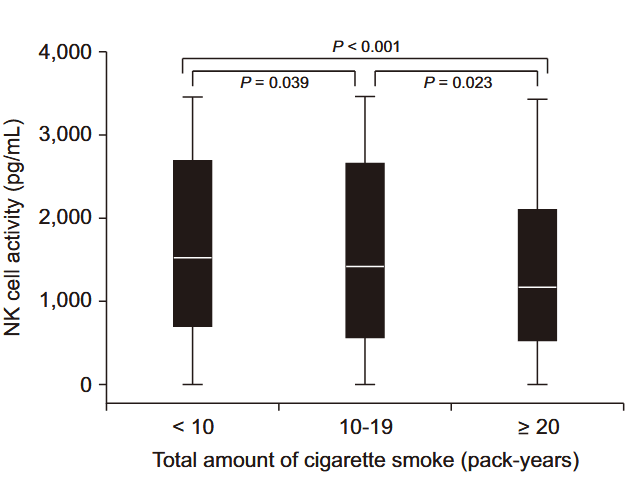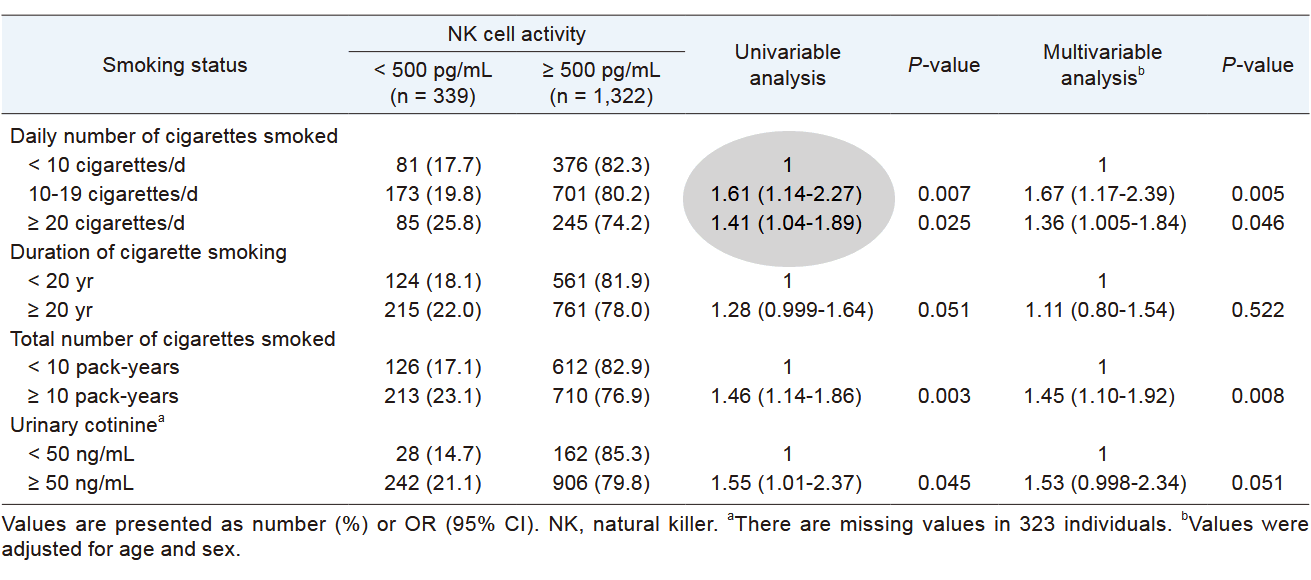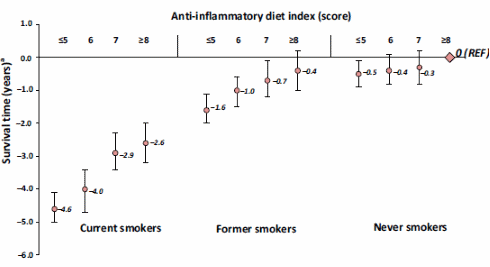Study
The researchers obtained blood samples from the study participants. They also knew whether the participants smoked—and if so, how much.
The researchers measured the activity of the natural killer (NK) cells in the blood samples by exposing the sample to a proprietary mixture of cytokines that specifically activates NK cells. They then measured the concentration of interferon-gamma. The higher the concentration, the more active the NK cells.
Results
In the smokers' samples, the researchers found 5 percent less interferon-gamma than in the non-smokers' samples. That doesn't seem like much. However, this picture changed when the researchers looked at the number of cigarettes the smokers lit daily.
As long as the smokers smoked fewer than 10 cigarettes per day, their NK cell activity was roughly the same as that of the non-smokers. If they smoked 10-20 cigarettes per day, their NK cell activity was 2.4 percent lower. If they smoked 20 cigarettes or more per day, their NK cell activity was even 21.3 percent lower.
Of course, the number of years the Koreans had been smoking was also a factor. The longer they had smoked, the lower their NK cell activity.
Click on the figures and the table below for a larger version.
Conclusion
It's obvious that smoking isn't healthy and that smokers are doing themselves a favor by quitting. However, that's not the take-home message of this web post.
What we do want to convey to the smokers among our eleven readers is that if something ever happens that forces you to rely on your NK cells to stay healthy, and you're unable to quit, you'd do well to limit the number of cigarettes you smoke daily. Keep it under 20 at the very least, and preferably under 10.







